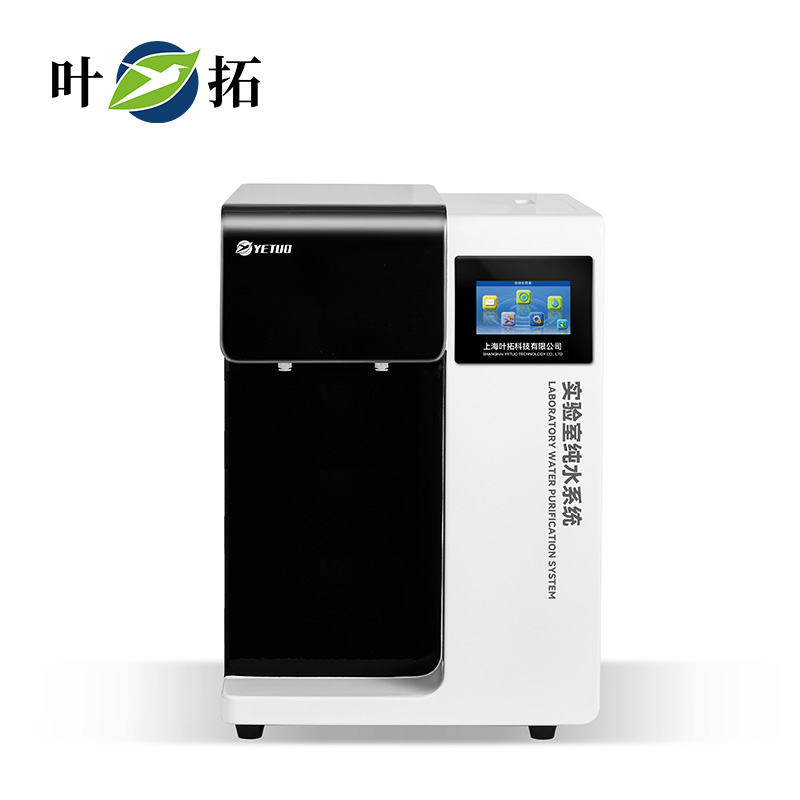A laboratory ultrapure water machine is a device used to produce highly pure water, typically used in fields such as laboratories, pharmaceutical industry, electronic manufacturing, and biological sciences. The following are the main features of laboratory ultrapure water machines:
High water quality standards: Laboratory ultrapure water machines can produce very high purity water, usually meeting or exceeding the water quality standards of pure water (Type II) and ultrapure water (Type I). They can remove ions, microorganisms, organic matter, and particles from water, producing water with extremely low conductivity.
Multi stage purification: These devices typically use multi-stage purification processes, including reverse osmosis, ion exchange, activated carbon filtration, and microporous filtration, to ensure high purity of water.
Online monitoring: Laboratory ultrapure water machines are usually equipped with online monitoring systems that can monitor water quality in real time to ensure that the generated water always meets purity requirements.
High yield: These devices are typically capable of producing enough water to meet the needs of laboratory or industrial applications. They can provide different flow rates of water as needed.
Compact design: Most laboratory ultrapure water machines have a compact design, suitable for placement on laboratory countertops or workbenches, occupying less space.
Easy to operate: These devices typically have user-friendly control panels and interfaces, making them easy to set up and operate.
Storage options: Some laboratory ultrapure water machines have water storage options that can store and provide high-purity water when needed.
Energy saving function: Some models have energy-saving functions, such as automatic shutdown or low energy consumption mode, to reduce energy consumption.
Suitable for multiple fields: The laboratory ultrapure water machine can be used for various applications, including analytical chemistry, molecular biology, cell culture, pharmaceutical production, semiconductor manufacturing, and electronic manufacturing.
In summary, the characteristics of laboratory ultrapure water machines include high water quality standards, multi-stage purification, online monitoring, high output, compact design, easy operation, storage options, energy-saving functions, and applicability to multiple application fields. These characteristics make them critical equipment in laboratory and industrial environments, used to ensure high purity and reliability of water in experiments and manufacturing processes.


 Alibaba Store
Alibaba Store Tmall Store
Tmall Store Jingdong Sstore
Jingdong Sstore







